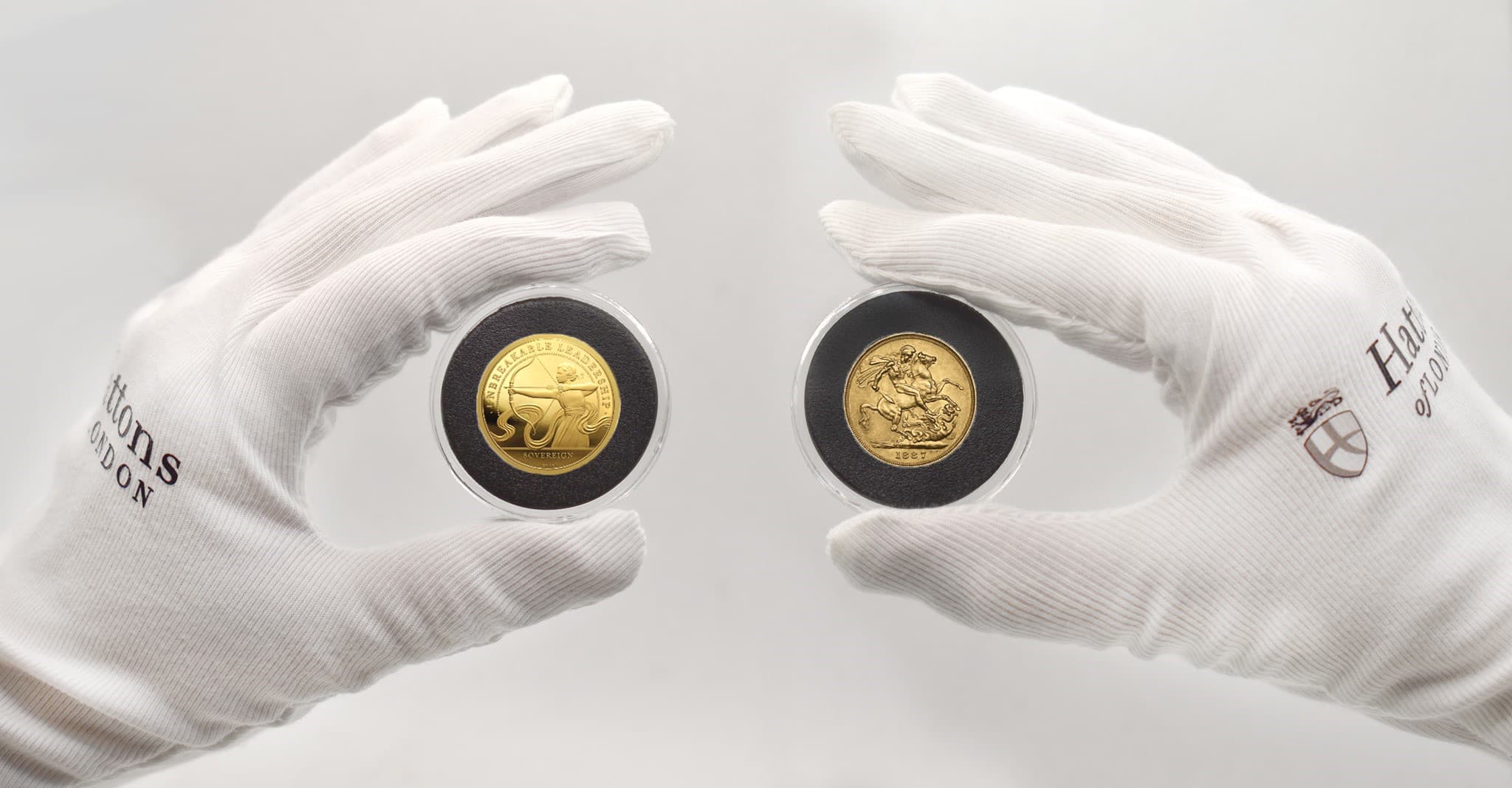
The gold sovereign was first created under the authority of King Henry VII in 1489, when he demanded a ‘new money of gold’ to illustrate his powerful reign. The sovereign, made for kings and queens, has been prestigious throughout history for its reliability, strength and accuracy, and has represented the advancement of the art of minting.
Here at Hattons of London we have an incredible selection of both new strike and heritage sovereigns, but what is the difference between the two? In our latest blog we will be exploring the two categories and what opportunities each has to offer.
New Strike
New strike coins are, as the name would suggest, recently minted and usually in the last year or two. New strike gold coins tend to fall into one of two categories: those produced in very large numbers as ‘lumps’ of bullion, and those that are restricted in production that have a rarity and exclusivity about them. They often commemorate and celebrate some of the world’s most historically significant and important events and anniversaries. They are usually produced with small mintage limitations, and those exclusive to Hattons of London have mintage limits of 5,999 or less and because of this, we can offer our clients a guarantee that certain coins will completely sell-out. This ensures that coins will not be “drip-fed” into the market for years to come, creating the best conditions for upward movement in secondary market pricing.
The intricacy of the striking process is what makes these coins desirable to coin collectors. With circulation coins, they are only struck once, usually at the rate of around 750 per minute, meaning the quality of the strike is ‘operational’. However, the striking of limited edition sovereign coins usually allows around half that number for brilliant Uncirculated coins at 300 per minute, but for Proof coins the numbers drop drastically, with an average rate of production of around 1½ coins per minute. Special dies that are carefully prepared beforehand are used during the striking process, and these dies are used fewer times than for circulation coins. Between each strike, the die is polished and the blanks are aligned with the coin press by hand. Each sovereign is inspected thoroughly post-strike for any imperfections and the result of all this care and attention are coins of unmatched quality and beauty.
Heritage
Generally speaking, Heritage coins are historic coins that are no longer in circulation. Often, these coins were struck using treasured and obsolete techniques, such as the mill-and-screw press (for Milled coinage) or hammering (for Hammered coins). Coin collectors can often be incredibly passionate about heritage coins, as they are a part of history and each coin tells a story. The collectability can be dependent on certain factors. For instance, the condition of the coin is crucial, as this will determine how sought-after the coin is to collectors and also impact the value of the coin. Also, copper and bronze coins tended to be produced in much larger numbers, meaning they are a lot easier to find today, and they are not worth as much as their silver or gold counterparts.
Hammered coins were the most common type of coin for centuries and were created by hammering (or striking) a design using dies and a hammer onto a piece of metal. Hammered coins were produced from ancient times and throughout many historic eras such as the Anglo-Saxons, Vikings, Normans, Plantagenet, and through to the Tudor and Stuart houses. The practice of hammering was forbidden in 1645 and a new method, the ‘milled’ or screw press method, was introduced. Milled coinage describes the process of producing coins using some form of machine. Matthew Boulton introduced industrial techniques and steam-power to the manufacturing of coins in 1788, and was given a contract by the Royal Mint in 1797. By the 20th century, mints were using electrical power to run these machines.
Whether you prefer New strike or Heritage coins, having a selection of the two would make your collection stand out, and we have a wide range of both available on our website HERE.


